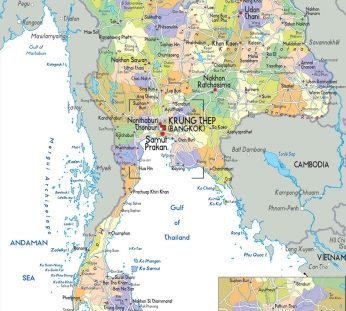
Thailand
Capital: Bangkok; GDP growth (annual %) 2016: 3.2 %-
Thai Economy Expands Most Since 2013
The Thai economy expanded at the fastest pace in additional than four years in the second quarter, largely driven by world request.
Gross domestic product expanded 3.7 % on a yearly basis, following the 3.3 % increase in the previous quarter, the National Economic and Social Development Board said Monday. This was the fastest increase since the initial quarter of 2013, at the same time as GDP climbed 5.2 %.
Quarter-on-quarter, economic increase held steady at 1.3 % in the second quarter.
On the spending side, private final consumption spending grew 3.0 %, compared to 3.2 % in the initial quarter.
More > -
Thailand promotes organic agriculture with new incentives
Rising request for Thai organic goods in both local and export markets has prompted the government to pursue a range of initiatives aimed at encouraging organic farming practices.
New support scheme
The national is launching a new programme to promote organic agriculture by encouraging a reduction in the all of new rice planting, and a shift from commercial varieties to organic strains, Chutima Bunyapraphasara, deputy minister for agriculture and cooperatives, told media in early May.
One aim of the programme is to reduce the area of standard rice cultivation by 1m rai (160,000 ha) within five years.
More > -
Tourism Authority of Thailand (TAT) is arranging a one-day tourism seminar
The Tourism Authority of Thailand (TAT) is arranging a one-day tourism seminar, to be held concurrently with the Thailand Travel Mart Plus (TTM+) 2017 which will take place from 14-16 June in Chiang Mai. The forum, scheduled on 16 June, is being organised with the objective of strengthening the competitiveness of the Thai tourism industry.
Mr. Yuthasak Supasorn, TAT Governor said, “This seminar forms part of the TAT Academy’s mission to help enhance Thai tourism personnel and market competitiveness inclunding to attract a new workforce for this growing industry. Sessions are carefully planned to ensure useful learning and knowledge sharing opportunities from senior tourism officials and experienced hospitality professionals. At the end of this one-day event, we hope participants will learn new perspectives in the field of tourism and travel in the digital era within the Royal Thai Government’s Thailand 4.0 smart-economy framework.”
More >
- Key Facts
-
Full name: Kingdom of Thailand
Population: 68.1 million (UN, 2010)
Area: 513,115 sq km (198,115 sq miles)
Major language: Thai
Major religion: Buddhism
Life expectancy: 67 years (men), 73 years (women) (UN)
Monetary unit: 1 baht = 100 satangs
Main exports: Food including rice, seafood and live animals, office equipment, textiles and clothing, rubber
GNI per capita: US $3,760 (World Bank, 2009)
Internet domain: .th
International dialling code: +66
-

Climate change laws around the world
2017/05/14There has been a 20-fold increase in the number of global climate change laws since 1997, according to the most comprehensive database of relevant policy and legislation.
The database, produced by the Grantham Research Institute on Climate Change and the Environment and the Sabin Center on Climate Change Law, includes more than 1,200 relevant policies across 164 countries, which account for 95% of global greenhouse gas emissions.
-
.jpeg)
Thailand Year in Review 2016
2017/04/17A slow-paced economic recovery and ongoing concerns over political stability were the hallmark of Thailand’s year in 2016, though the new year should bring stronger prospects.
Changes abound
Thailand closes out 2016 under something of a cloud, mourning the death of long-reining monarch King Bhumibol Adulyadej on October 13. Having ruled for 70 years, the passing of the 88-year-old chief of national has added an additional element of uncertainty to the current social and economic environment, with the king often having provided a stabilising hand in troubled times.
-
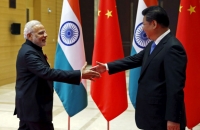
Asia Economic Roundup: July 2016
2016/07/18Without a doubt Britain’s decision to abandon the European project will be remembered globally as a wake-up call for political elites around the world. It seems the people chose to go against immediate economic interest and accept an extra financial turmoil in order to address deeply seated social and identity issues.
Although Asia’s exposure to the UK is relatively limited and this is not exactly a “Lehman Moment”, nonetheless we can expect a lively debate as policymakers in Asia look for an appropriate response to address the needs of vulnerable households.
-

Thailand Year in Review 2015
2015/12/27Coming off a weak 2014, with economic increase of just 0.7%, Thailand’s economy staged a slow but steady recovery year-to-date (YTD), and is well placed to build momentum into 2016.
GDP expanded by 2.9% in the third quarter, above market expectations, driven by stronger export request and higher levels of public spending, as the impact of the government’s investment programmes began to register.
-
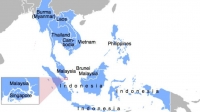
Towards A Transboundary Haze-Free ASEAN By 2020: Prevention And Collaboration
2015/11/16To sustain the efforts of a transboundary haze-free ASEAN, it is significant to remain vigilant and be prepared early enough to prevent any occurrence of fires. This calls for better early warning systems and swift deployment of fire-fighting resources even before the fires starts.
-
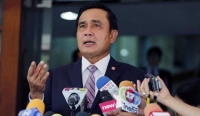
Thai Prime Minister Prayuth Chan-ocha talks on the anniversary of the military coup
2015/06/06Thailand’s military-led government has invoked Article 44 of the interim constitution to replace martial law. The controversial article vests complete power and authority with Prime Minister General Prayut Chan-ocha in his capacity as chief of the National Council for Peace and Order — Thailand’s junta that has governed through martial law for over 10 months so far. The replacement of martial law with Prayut’s absolute authority yields several immediate implications.
-
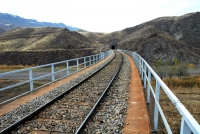
China and Japan vie for influence with Thai rail projects
2015/03/06The strategic rivalry between Japan and China in Asia is finding expression not only in territorial disputes in the east China sea but as well in plans for railways to criss-cross Thailand and from presently on link the country to a wider Indochina rail network.
Both lines will serve primarily as freight transport systems. The planned Chinese-backed railway will run north-south from Thailand’s major deep seaport in Rayong to the Laos border at Nong Khai, with a separate spur that connects to Bangkok. -
Thailand Year in Review 2014
2015/02/15A slowing of domestic and overseas request, combined with uncertainty over Thailand’s political direction, cooled the economy in 2014, with most forecasts for this year indicating increase will remain subdued.
Thailand’s economy is still rebalancing next the social unrest in the early months of 2014 and a military intervention in May. Although the coming-to-power of a government has seen a marked decline in protests and disruptions to the economy, there has as well been a scaling back of investment projects and national spending, which is likely to curb increase.
-

Thai entrepreneur Bee Taechaubol brings investment to local SMEs
2015/05/22SMEs are about to receive a helping kick-start, thanks to the Thai government\\\'s new policies and to entrepreneurs like Bee Taechaubol, who are putting up and attracting private equity to get the economy moving in the right direction
- Thailand News
-
- ECONOMY: Thailand's GDP Growth Accelerates In Q2
- STOCK MARKET / FINANCE: Thai Economy Expands Most Since 2013
- AGRIBUSINESS / FOOD: Thailand promotes organic agriculture with new incentives
- TOURISM: Tourism Authority of Thailand (TAT) is arranging a one-day tourism seminar
- ECONOMY: Thailand works to liberalise insurance sector
- LOCAL GOVERNMENT: Japanese royals pay respects to King Bhumibol
- Trending Articles
-
- BOTSWANA: Bill Gates sees US likely to maintain aid levels for Africa
- NIGERIA: The city that won't stop growing, Lagos
- EUROPEAN UNION: UK seeks to 'align' with EU on data protection rules
- ANGOLA: Buhari Among African Presidents Who Lack Faith in Own Health Systems
- PAKISTAN: Qatar launches new direct sea route to Pakistan
- BOTSWANA: Africa’s economic growth in 2016 was driven by East Africa





 is arranging a one-day tourism seminar.jpeg)


 is arranging a one-day tourism seminar.jpeg)

